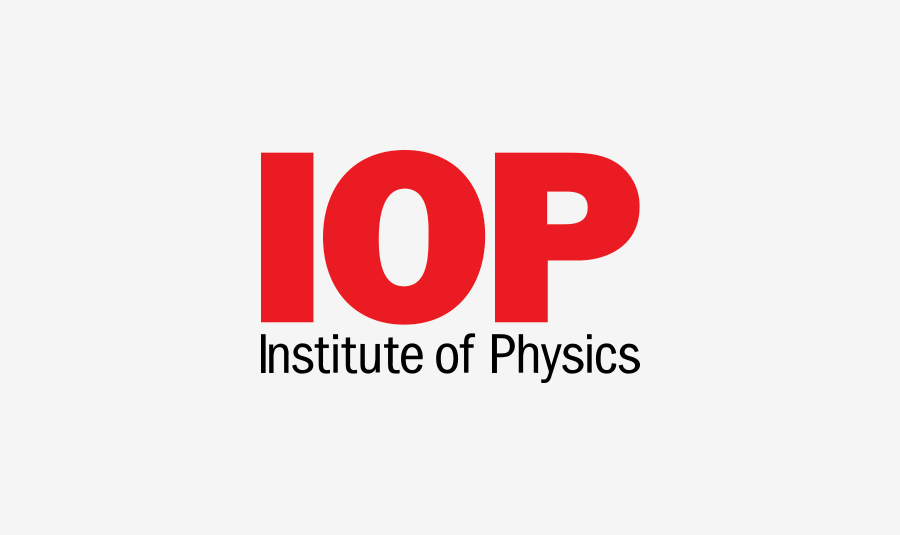
A call to action: the role of physics in delivering the global green economy
The Institute of Physics (IOP) has signed the following statement together with national physical societies around globe:
According to the United Nations Environment Programme (UNEP), "a green economy is defined as low carbon, resource efficient and socially inclusive[1]." Furthermore, the Organization for Economic Co-operation and Development (OECD) defines green growth as "fostering economic growth and development, while ensuring that natural assets continue to provide the resources and environmental services on which our well-being relies[2]."
Nations are collaborating to mitigate the negative impacts of the global climate crisis. As politicians embrace the notion of a green economy, scientists, engineers, and social scientists are mobilising to meet the challenge. The evolving concept of a green economy relies on the commercialisation of breakthrough technologies, which themselves rely on research and development at a fundamental level. Interdisciplinary collaboration among scientists is essential in providing the transformative technologies needed to evolve and implement the green economy, within the timescale required. The ultimate goal of fundamental research is to enhance the innovation needed to drive global economic growth in an environmentally conscious and sustainable way, one that is both economically successful and globally inclusive.
Physics plays an important part in all our lives and particularly in our understanding of the climate. Pioneering efforts to reduce energy consumption, diminish pollution, and develop more efficient processes are currently being researched and developed by teams of physicists and colleagues from neighbouring disciplines. For example, innovation in advanced materials research has reduced the cost of solar electricity 100-fold in the last two decades[3]. Ongoing innovations in hydrogen energy storage, generation of electricity, nuclear power, superconductivity, areas of spintronics, semiconductor devices, and quantum science and technology, are all part of the suite of innovation programs that will play a key role in expanding future green energy resources.
Fundamentals for future scientific progress
As physicists, we identify three fundamentals for ongoing scientific breakthroughs and innovations to support the global green economy:
- A multidisciplinary approach: achieving significant and sustainable societal change requires multi-and trans-disciplinary ways of working. For physicists that means collaborating with engineers, chemists, biologists, social scientists, and medical researchers, and with economists, lawyers, policy experts and government leaders and officials. Science and engineering can develop technologies that tackle global challenges and physicists will partner with other disciplines to underpin our understanding of the physical world in support of a green economy, while also advancing structural and behavioural societal change.
- National policies that support scientific mobility: the physical sciences workforce in academia and industry is multinational, interdisciplinary, and funded through international as well as national systems. Successful international collaboration requires continued funding of multinational projects and policies that enable the free movement of scientists across national borders.
- A diverse and inclusive workforce: a diversity of background, thought, and experience enriches teams, enhances innovation, and realises more fully the enormous potential of the global physics community. Physicists must commit to recruiting a diverse student body and teaching, recognising, and celebrating the importance and value of an inclusive, welcoming, and collaborative approach to the conduct of our sciences.
Call to action
Physicists worldwide will partner with national governments toward combatting the challenges of climate change and contributing to the global green economy. In doing so, our approach will include contributions from government and scientific partners.
Commitments from physics societies: national physical societies and federations, both individually and as a collective, will:
Build on the achievements of physics in understanding, tracking, addressing, and alleviating the global climate crisis. We will continue to support international collaboration, work across scientific and other disciplines, and support trans-disciplinary projects.
Improve global scientific literacy through physics education; advocate for greater investment in physics research and innovation; empower our physics communities to engage in policy development; and work with our governments to prioritise physics-based R&D.
Commit to welcoming minoritized, excluded and marginalised peoples to build careers in physics and emphasize the importance of diversity and belonging in enhancing teamwork, maximizing research and innovation, and facilitating international collaboration.
Request to governments: we ask that governments promote and fund multinational scientific collaborations and devise national policies that uphold four fundamental scientific freedoms, as identified by the International Science Council (ISC)[4]:
- Freedom of movement.
- Freedom of association.
- Freedom of expression and communication.
- Freedom of access to data and information.
We recognise that these freedoms require scientists to uphold the foundations of research integrity: including objectivity, honesty, openness, accountability, fairness, disclosure, and stewardship [5]. Nonetheless, as the ISC asserts, "the rigorous practice of science is essential to addressing the global challenges currently facing society. For progress to be equitable and effective, scientists must have the right to scientific freedom, with due respect and protection from all states and governments around the world."[6]
Signed by: American Institute of Physics; American Physical Society; Canadian Association of Physicists; Chinese Physical Society; French Physical Society; Indian Physics Association; Institute of Physics for the UK and Ireland; Italian Physical Society; The Japan Society of Applied Physics; Netherlands' Physical Society; Optica (formerly OSA); The Physical Society of Japan.
[1] https://www.unep.org/regions/asia-and-pacific/regional-initiatives/supporting-resource-efficiency/green-economy
[2] http://www.oecd.org/greengrowth/
[3] https://www.nrel.gov/news/press/1999/299phys.html
[4] https://council.science/current/news/statement-on-concerns-for-scientific-freedom-around-the-world/
[5] Many of these principles are described in the National Academies Report Fostering Integrity in Research, NAP21896, National Academies (2017)
[6] https://council.science/current/news/statement-on-concerns-for-scientific-freedom-around-the-world/






